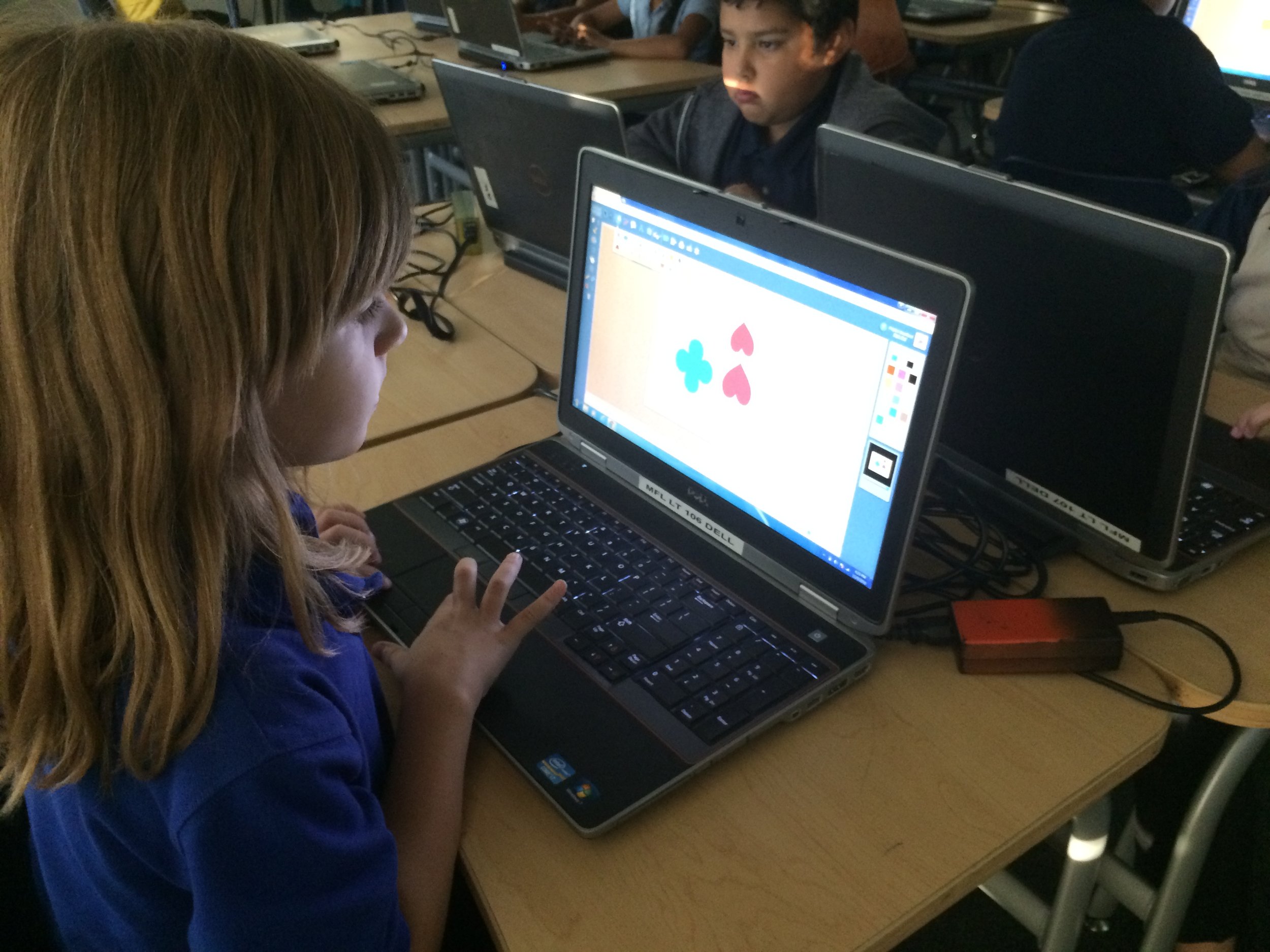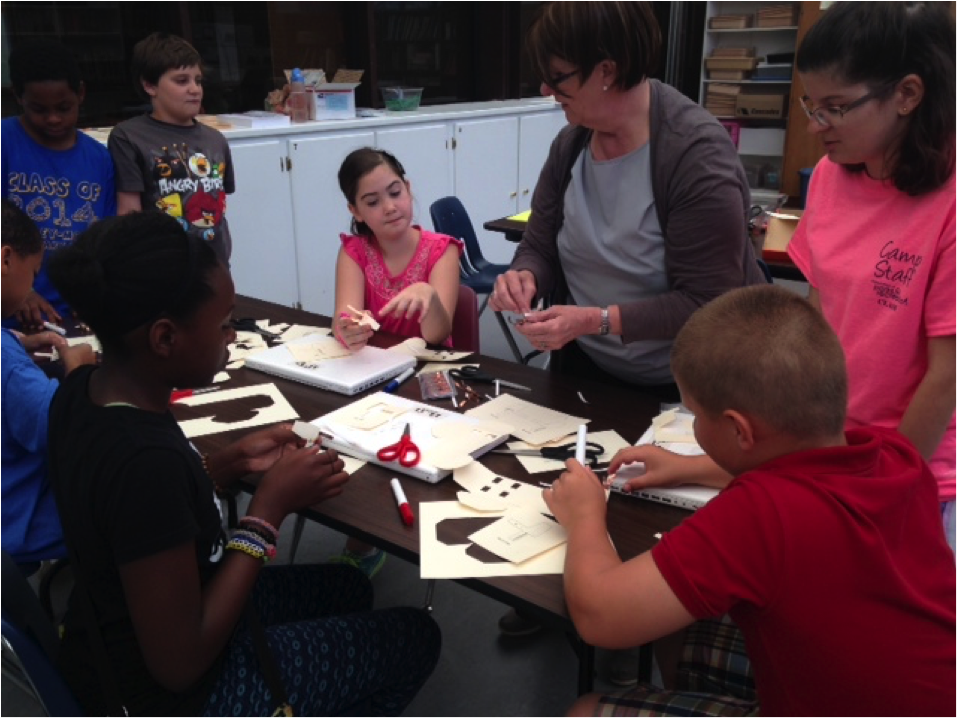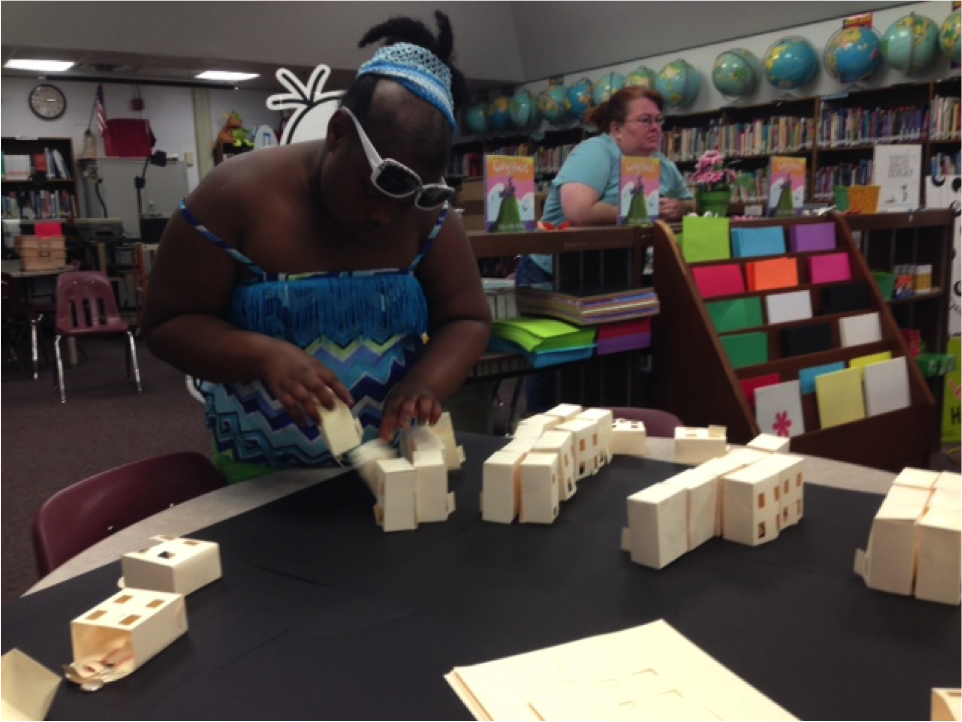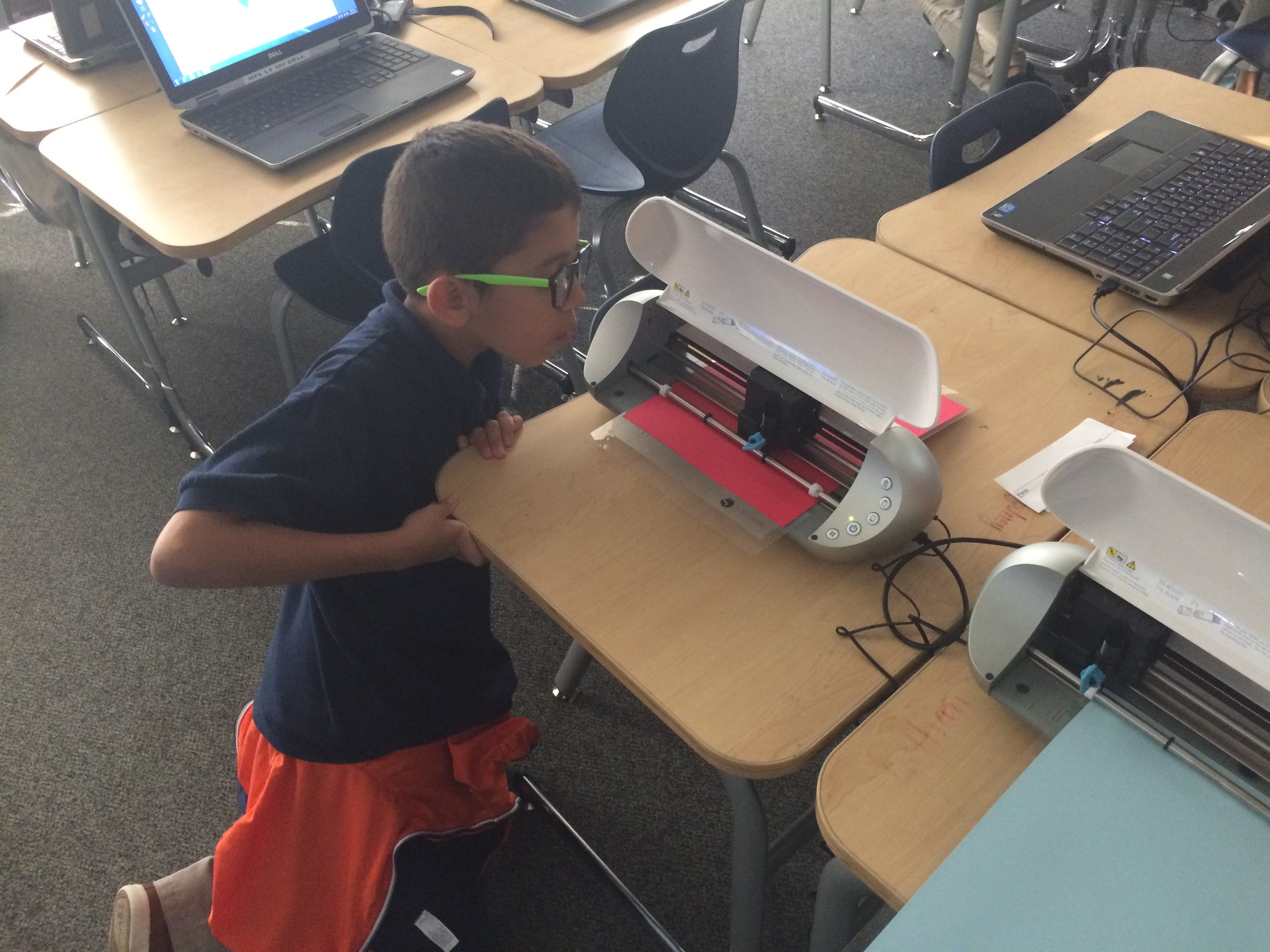Fab@School Research & Development
Fab@School Maker Studio emerged from the national Make To Learn research initiative – a collaborative of non-profit, educational, and for-profit organizations spearheaded by the University of Virginia. This initiative has a shared goal of tackling the disruption in the STEM education and career pipeline – at a much earlier point in students’ learning journey. The coalition has spent the last eight years building a research-based initiative to integrate STEM education into elementary and middle school curricula in more effective ways. The initiative has garnered support from NSF and U.S. Department of Education, as well as foundations such as Cisco, MacArthur, Noyce, Motorola, and Gates.
The Reynolds Center has seen steadily increasing impact on students. A 2011 PEAR Institute Common Instrument report of a Noyce Foundation-funded Fab@School middle school pilot demonstrated a 33 to 49% increase in student interest in science and technology after only 8-weeks of using the program. More recently, a 2018 PEAR Common Instrument survey of three Massachusetts school districts resulted in 96.9% of students reporting positive gains in STEM Interest and 82.1% in STEM Identity as a result of participating in the FabMaker program.
Why Engineering?




Widespread engineering literacy is essential for our future economic success as a nation. Recently, the National Academy of Engineering (2010) estimated that during the last 20 years only about 5 million children have been introduced to engineering in their classrooms—an average of only 250,000 students per year.
By contrast, the annual enrollment in US elementary schools exceeds 31 million students (US Department of Education, 2008–9). These statistics suggest that each year, less than 1% of our K–12 students are exposed to engineering learning. If we want to assure enough engineers to sustain our economy, we need to substantially increase the number, and diversity, of students who have the opportunity to understand engineering and see the opportunities in engineering and related careers. To achieve both of these aims, young children should be introduced to engineering in a way that is motivating, engaging, and inspiring—and at the same time, supports both science and mathematics content standards and the recommendations of the National Academy of Engineering.
Many educators find it almost impossible to introduce engineering into an already crowded curriculum. Only New Jersey mandates that children have some exposure to engineering topics by grade 2. In addition to finding a place for engineering topics in the elementary school curriculum, the majority of elementary school teachers are unfamiliar with engineering as a discipline. But there is emerging research evidence, although still very limited, that introducing engineering into the K–12 curriculum can stimulate interest and improve learning in mathematics and science (NAE and NRC, 2009; NAE, 2010).
In addition, K–12 engineering education supports social and emotional learning in children. Successful problem-solving in engineering requires teamwork and collaboration. It requires cooperation, listening to others, accepting the ideas and opinions of others, and understanding that there may be more than one “right” way to solve the problem. It requires an understanding of the needs and wants of people and their communities, and then finding a solution which addresses those needs. These are all skills we want our children to have. By immersing children in a cooperative problem-solving environment where success comes by thinking and working together, K–12 engineering education can contribute substantially to enhancing children’s social and emotional skills.
The first steps are now being taken to bring engineering learning into the elementary grades through federal and corporate-funded projects as well as school-based initiatives. A New York Times article highlights the growing interest at the federal, state, and local levels in promoting engineering education in the elementary grades and showcases several exemplary elementary schools in New Jersey and Virginia who have successfully incorporated engineering into their curriculum.
The Fab@School Project is one of these new engineering education initiatives that will bring engineering more widely into K–12 schools nationwide. As an integral part of the project, Fab@School Maker Studio is an innovative tool that provides a comfortable on-ramp for teachers and students as they integrate engineering into their classrooms.
